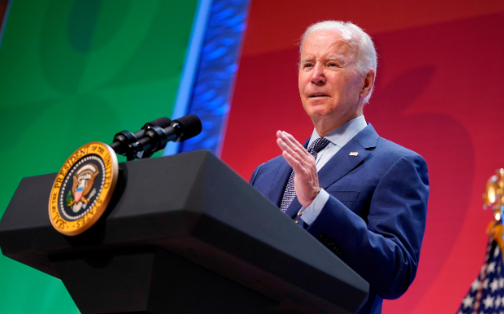One of President Joe Biden’s main policy priorities is the cancellation of student loans. He has been under constant pressure from the far-left to take all necessary steps to eliminate the debt owed by Americans who took out loans and promised to repay them.
He sought to implement an extensive debt forgiveness initiative, providing either $10,000 or $20,000 in relief to Americans burdened by debt. However, the Supreme Court invalidated the policy.
Following the justices’ decision against the policy, the president’s administration unveiled a new forgiveness plan. In this iteration, he overhauled the income-based forgiveness program. Despite attempts by Senate Republicans to block the plan, they were unsuccessful.
November 15 saw the Democratic-controlled Senate casting a 49-50 vote against the Congressional Review Act (CRA) resolution aimed at halting Biden’s Saving on Valuable Education (SAVE) plan. The resolution fell short by just one vote, as a CRA requires only 50 votes for passage, distinguishing it from other bills.
Democratic Senator Joe Manchin (D-WV) broke ranks and sided with Republicans, while Senator Tim Scott (R-SC) refrained from voting on the resolution. Prior to the vote, the Biden Administration issued a memo criticizing the resolution. The president asserted that he would have vetoed the measure had it successfully navigated through Congress and reached his desk.
In contrast to the president’s forgiveness plan, which was struck down by the Supreme Court, the SAVE plan determines repayment plans by considering the borrower’s family size and income, rather than the amount of student loan debt they owe. After a specified number of years, borrowers can qualify for loan forgiveness.
Individuals with low income can enroll in the program and have their loan payments reduced to zero during times of financial hardship. This provides them with the necessary space to recover, preventing their loans from going into default. Avoiding default is crucial, as it preserves their eligibility for future loans, be it for educational purposes or homeownership.
Individuals borrowing less than $12,000 can seek forgiveness after making payments for a period of 10 years. Reportedly, over 5.5 million borrowers have already opted for this plan. Education Secretary Miguel Cardona has characterized it as the most cost-effective repayment scheme in history.
Senator Bill Cassidy (R-LA) criticized the forgiveness plan, deeming it irresponsible and inherently unjust. He expressed dissatisfaction with the provision that excludes individuals who didn’t attend college from receiving forgiveness for purchases like a truck. On the contrary, Senate Majority Leader Chuck Schumer (D-NY) expressed satisfaction with the Senate’s decision to reject the legislation. He considered it a genuine victory for the nation’s youth and the future of America.








